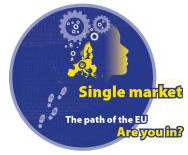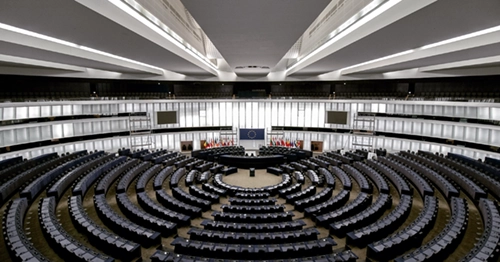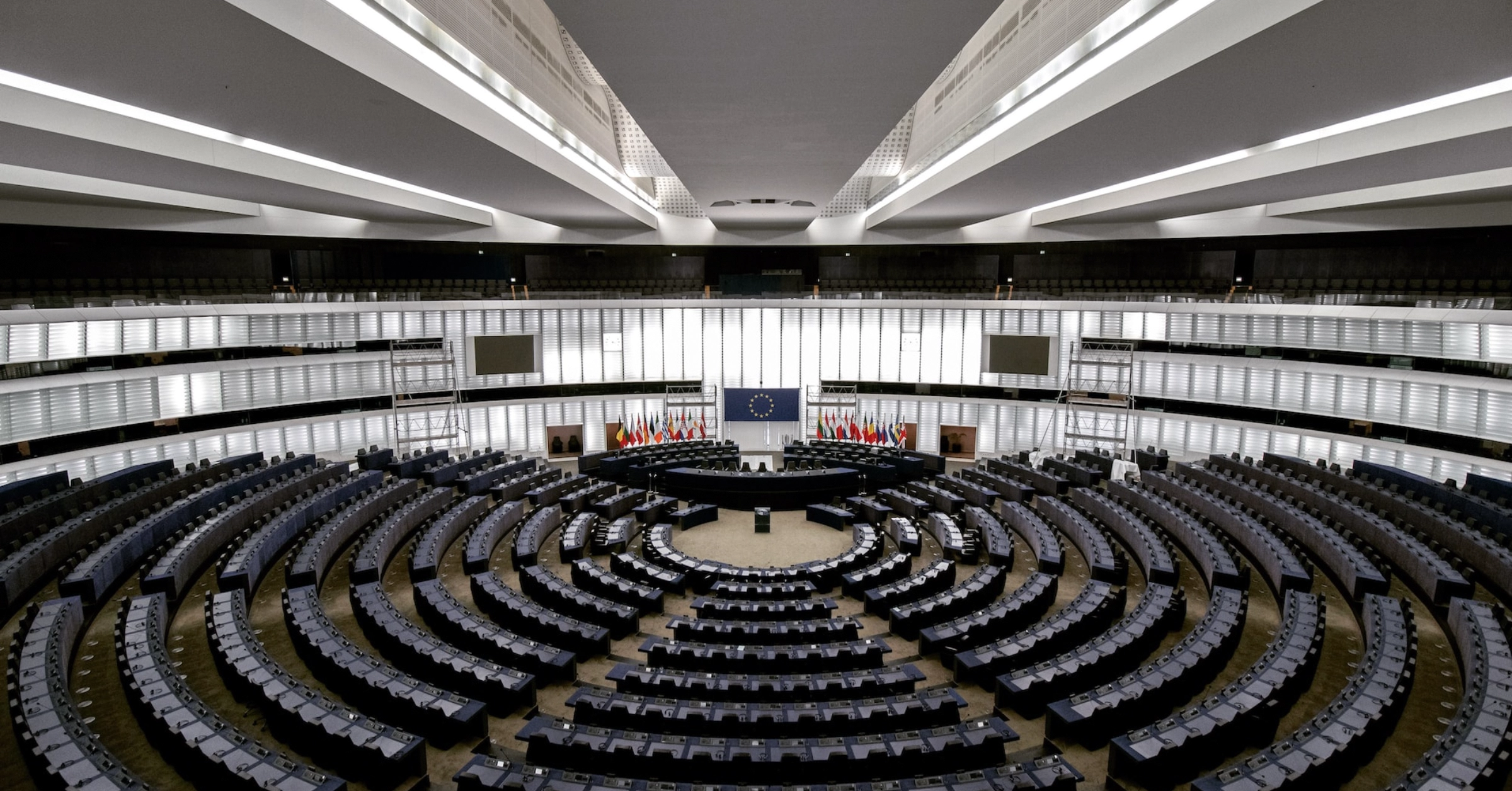



Recall how in late January, EU Antitrust Chief Guersent (at the Next World Order conference organized by Cristina Caffarra) called competition law a side dish. In late April, EU Commissioner Vestager (at the ABA Spring Meeting) acknowledged that setting enforcement priorities might be closer to “whack-a-mole” than resembling a systematic approach.

Recall how in late January, EU Antitrust Chief Guersent (at the Next World Order conference organized by Cristina Caffarra) called competition law a side dish. In late April, EU Commissioner Vestager (at the ABA Spring Meeting) acknowledged that setting enforcement priorities might be closer to “whack-a-mole” than resembling a systematic approach.
Endless howls later, looking at just one area of competition law, the Foreign Subsidies Regulation / FSR: how right they both are. Certainly as meanwhile, it’s election fever time, so Germany and France are fielding new calls for creating national champions.
It’s bugged me long enough to do an armchair post (viz., read it on a rainy afternoon, and file it as such). Could our efforts to tackle climate change and energy supply be leading us into a regulatory quagmire, jeopardizing the very market principles that have driven economic success for decades?
Big picture, it feels as if we cannot come up fast enough with new areas and tools to let competition law intervene, ever more and ever faster into the market economy, to remedy climate change, energy supply, you name it. In so doing, the more progressive voices seem prepared to jettison the consumer welfare standard (that has been guiding antitrust for decades), as being outdated and holding back the creative Zeitgeist.
To be clear: I like my clean air. But I find this a dangerous development, as setting the cart before the horse threatens the overall rather positive track-record of competition law, inviting arbitrariness and legal uncertainty.
Let’s take a step back. Facing climate change, energy supply, etc., well-intending European governments resort to market-distorting measures (read: regulation, commandments, and prohibitions), setting aside the functioning of a market economy based on competition. Outcome to date: open-ended, but certainly costly.
Finally, lest anyone might think otherwise, this post covers my personal views only.
Worse, in a globalized world, facing global issues, such measures are counterproductive if they are imposed unilaterally in Europe only, and not on the global market. The dirty junk that can no longer be produced (and/or sold) in Europe is then simply produced (and/or consumed) elsewhere in the world. For European companies, it leads to price increases (currently further fuelled by geopolitical developments) and significant competitive disadvantages. Outcry!
So, governments react by bringing competition goals (initially set aside to introduce the market-distorting measures to achieve climate change, energy supply, etc.) back to the fore, to prevent hostile takeovers of European companies in trouble (for example, through the FSR). Generally (re-)introducing competition principles at such point carries new risks, however, because a dynamic vision of consumer welfare dictates that only viable or innovative companies should be saved. This requires renewed differentiation, but now it is down to the competition regulator to determine how to set its enforcement priorities. That is when Commissioner Vestager called for a systematic approach, but acknowledged it had the look and feel of “whack-a-mole”. Her words. So, being generous – outcome to date: open-ended, once again.
Why don’t we accept that we (and that comprises governments) do not necessarily know how to steer climate change, energy supply, etc., in the most efficient way. Of course we still want that clean air, cheap and sustainable energy, etc., but should governments not cut the red tape and let markets do the hard job of figuring out what works, stimulating the desired non-competition goals by (i) imposing targeted taxes (internalizing the inevitable externalities that accompany such goals) coupled with (ii) a framework that allows markets to come up with a price (for example, in the case of climate change, the right to emit certain volumes of greenhouse gases could be traded between purchasers and suppliers, thus setting a price on CO2).
Anything less, and we end up in a vicious cycle. And it’s a tough assignment for sure. But one that politicians (held accountable by the electorate) are better tasked with than officials administrating competition law.
Afterthought: perhaps, it is no coincidence that Ms Vestager is the political (“whack-a-mole”) head of the EU’s antitrust arm, and Mr Guersent the senior (side dish) administrator.

Or, the tale of the real Regulation which takes a long-overdue stab at correcting market failure long plaguing EU SEPs licensing.
As the European Parliament (the “EP”) pushes on with legislating the SEPs Framework Regulation, SEPs holders – worried that their cozy run at achieving supra-normal royalties may (finally) be under threat in Europe – have bombarded the Parliamentary Committees and individual MEPs with messages saying no market failure could be discerned, and that no regulation is needed to correct something that (supposedly) isn’t happening.

Lobbying for one’s cause may not qualify as “fake news” in the strict sense, I get that (and I apologize for any linguistic offense caused). But let me unpeal the geopolitical messaging for you:
I do trust our MEPs to see through the strategizing taking place, navigating the terminology
and inherent complexity of
licensing to come to the same result – regulation is needed, and the SEPs Framework Regulation
(as amended by JURI) is
fit for purpose.
To be continued!
As always, views in this post are my personal views only.

Or, Internal Market is all about leveling the (licensing) playing field
Fresh on the heels of my previous post, more evidence is emerging that the European Parliament (EP) is progressing well its review of the SEPs Framework Regulation. After JURI (Legal Affairs) and INTA (International Trade), now also the IMCO (the Committee covering the Internal Market and Consumer Protection) opinion has entered circulation.

Fresh on the heels of my previous post, more evidence is emerging that the European Parliament (EP) is progressing well its review of the SEPs Framework Regulation. After JURI (Legal Affairs) and INTA (International Trade), now also the IMCO (the Committee covering the Internal Market and Consumer Protection) opinion has entered circulation.
The EU Internal Market is all about leveling the playing field within the Union, and,
unsurprisingly, IMCO “fully
supports” the objectives the European Commission has set out to achieve with the SEPs
Framework Regulation, by proposing
amendments that ensure all standards are brought in-scope of the new Regulation. Most notably,
as JURI, IMCO proposes to
delete Recital 4 that provided a loophole to Wi-Fi, HEVC and LTE, and it also removes the
entire Article 66 process for
delegated acts (seen to overly facilitate the ability for SEP holders to achieve injunctions
to the detriment of
innovation and European resilience).
Further, IMCO improves on two key aspects of the SEPs Framework Regulation, the determination
processes for (i) FRAND
and (ii) aggregate royalties:
Besides those big brush strokes, IMCO introduces a slew of amendments aiming at strengthening the EUIPO processes, streamlining the existing draft, improving transparency further, and providing further benefits to SMEs (while distinguishing them from patent assertion companies). Another constructive contribution, this, also highlighting the investment that will need to be done to enable the EUIPO to take on this new and important task.
With the three opinions available, look for intense discussions to take place within the EP
over the next couple of
weeks. IMCO and INTA will aim to finalize by October 26 as things stand now, JURI to follow
the next day (October 27).
Votes to follow in November.
Meanwhile, the Spanish presidency is hard at work positioning the Council. Watch this space
for further developments!
As before, this post covers my personal views only.

Or, why to put good lawyers in your Committee on Legal Affairs
The European Parliament (EP) is powering on with its review of the SEPs Framework Regulation. Reports of the reviewing Committees are due by end of the month. Draft versions are already circulating (this is Brussels, after all).

The European Parliament (EP) is powering on with its review of the SEPs Framework Regulation. Reports of the reviewing Committees are due by end of the month. Draft versions are already circulating (this is Brussels, after all).
The key report is from the Committee on Legal Affairs (JURI), which is in the lead. It’s a constructive effort to further safeguard European interests. The draft report sets out to solidify the draft from the European Commission, by (i) improving legal certainty and (ii) balancing further the interests of both SEP holders and SEP implementers. Mostly SEP holders have bemoaned the Commission drafting (inconsistencies, lack of experience, all too one-sided, etc.). They should read twice now:
The one area where JURI might want to do some further work is on aggregate royalties. Noting (in the accompanying explanatory statement) that JURI believes it should not be possible for either the SEP holders or SEP implementers to engage in one-sided blocking tactics, one might expect some change to be forthcoming still on Article 18 (which is the sole gateway for SEP implementers to launch an aggregate royalty determination, but, at present, still hinging on SEP holder engagement).
All in all, though, a laudable effort by JURI – or, why to put lawyers in charge of reviewing legislative proposals.
Not so, by the way, from another EP Committee (INTA, the EP committee dealing with international trade). INTA is not part of the immediate review process relating to the SEPs Framework Regulation, but seems to believe it should contribute a de-constructive “no need for any of this” view in a blatant attempt at pandering the SEP holder side. Pity, that. Actually engaging with the Commission proposal might have added to the critical discourse.
Let’s watch this space, and (also) see what the other Committee with a direct stake in the review (IMCO, the EP committee dealing with the internal market) produces.
Finally, lest anyone might think otherwise, this post covers my personal views only.